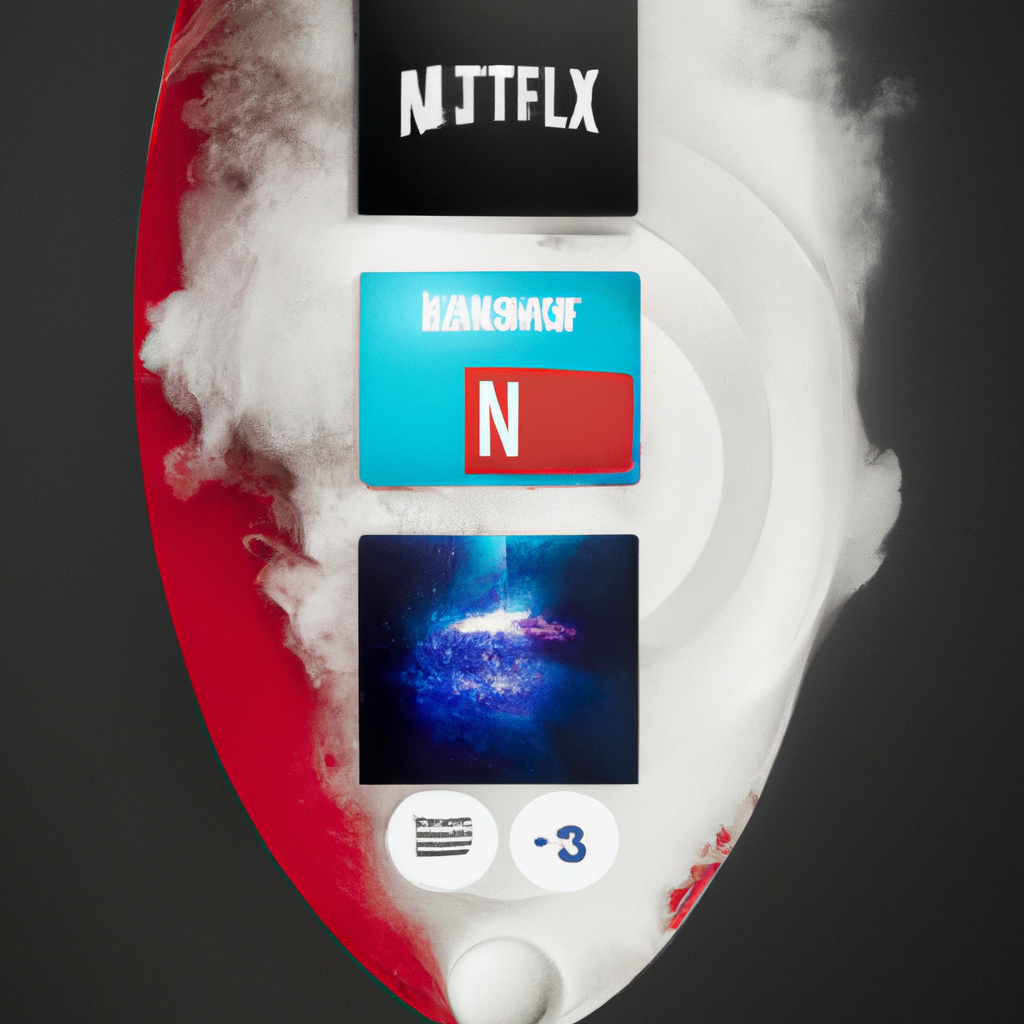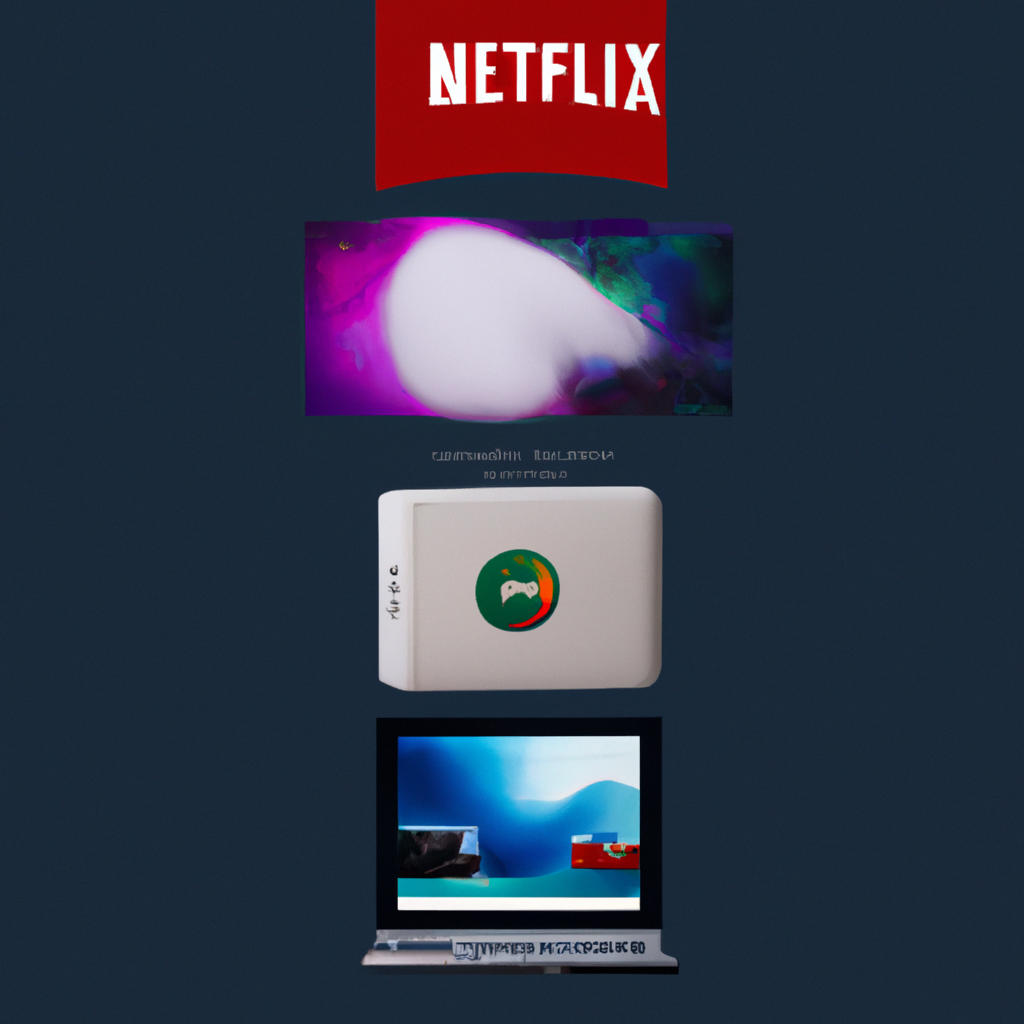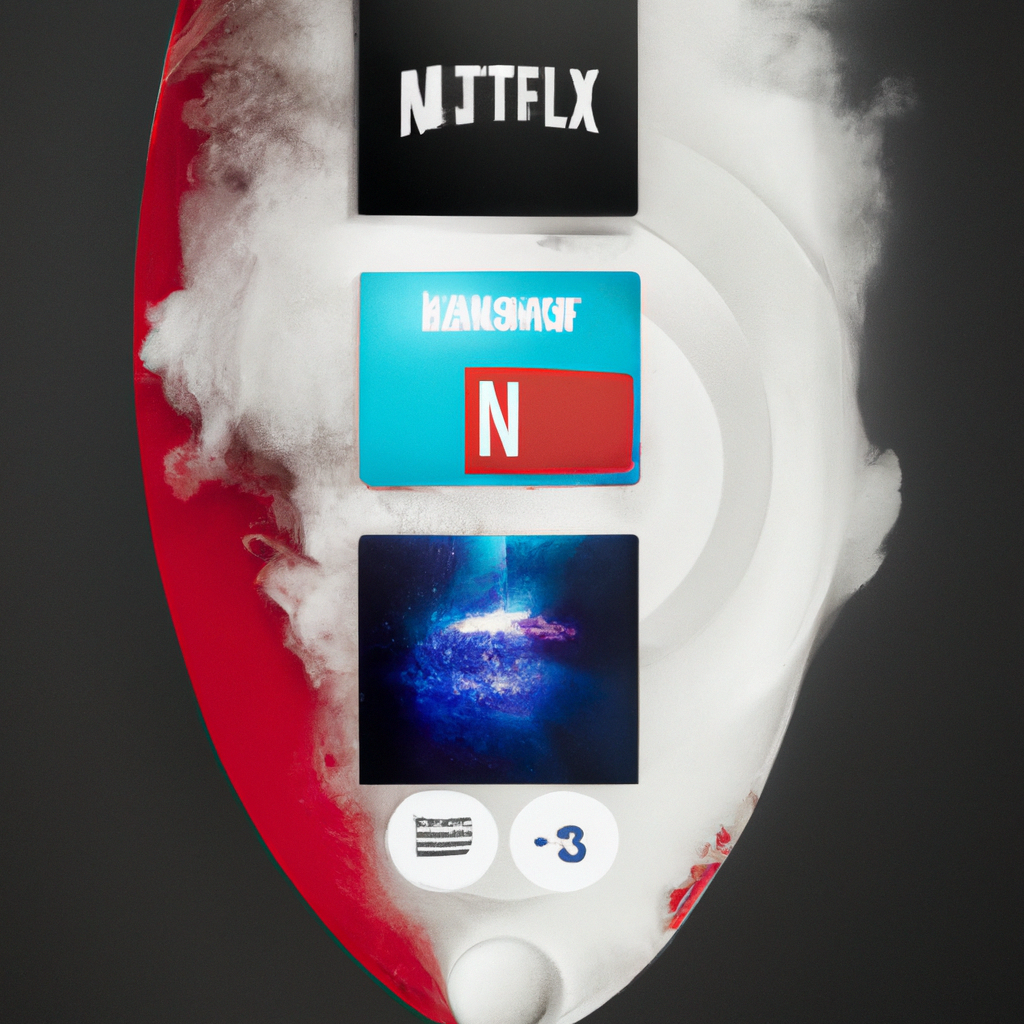So you’ve probably heard of Netflix, the popular streaming service that provides a wide range of movies and TV shows at your fingertips. But have you ever wondered if Netflix falls under the category of a Software as a Service (SaaS) provider? Well, the answer to that question might surprise you. In this article, we’ll explore the fascinating world of Netflix and examine whether it can be considered a SaaS provider or not. Let’s dive in and uncover the truth behind Netflix’s classification in the realm of SaaS.
Overview of SaaS
What is SaaS
Software-as-a-Service (SaaS) is a cloud computing model that allows users to access software applications over the internet. With SaaS, instead of purchasing and maintaining software installations on your own devices or servers, you can simply log in to the SaaS provider’s platform and start using the software immediately. The provider takes care of all the infrastructure, maintenance, and updates, while you pay a subscription fee for the access to their software.
Characteristics of SaaS
There are several important characteristics that define SaaS:
-
Multi-tenancy: SaaS providers serve multiple users or customers from a single application and infrastructure. This means that all users share the same version of the software, but their data is kept separate and secure.
-
Scalability: SaaS allows for easy scalability, as the provider can accommodate an increasing number of users without requiring individual software installations or upgrades.
-
Automatic Updates: SaaS providers handle all software updates, ensuring that you always have access to the latest features and enhancements without any manual intervention.
-
Accessibility: SaaS applications can be accessed from any device with an internet connection, giving users the flexibility to work from anywhere.
Benefits of SaaS
SaaS offers several advantages that make it an attractive choice for businesses and individuals:
-
Lower Costs: With SaaS, there is no need for upfront purchases or licensing fees. Instead, you pay a recurring subscription fee, which is often more cost-effective, especially for small businesses.
-
Simplified IT Management: SaaS eliminates the need for software installation, maintenance, and updates, reducing the burden on your IT department. The provider takes care of these tasks, allowing your IT team to focus on more strategic initiatives.
-
Faster Implementation: SaaS applications can be set up quickly, often within minutes, as there is no need for hardware installation or complex configurations. This allows you to start using the software immediately and accelerate your time-to-value.
-
High Scalability: SaaS providers offer flexible plans that can easily accommodate your growing needs. You can add or remove licenses as required, making it easier to scale your software usage as your business evolves.
-
Continuous Innovation: With automatic updates, you always have access to the latest features and improvements. SaaS providers regularly roll out new functionalities, ensuring that you stay competitive and have access to cutting-edge technology.
Understanding Netflix
Introduction to Netflix
Netflix is a global entertainment company that provides a wide range of movies, TV shows, and original content through its online streaming platform. Founded in 1997, Netflix started as a video rental service and revolutionized the industry by introducing the concept of streaming content directly to users’ devices. Today, it has become one of the leading streaming services in the world, with millions of subscribers worldwide.
Netflix’s Business Model
Netflix’s business model revolves around its subscription-based streaming service. Users pay a monthly fee for unlimited access to the vast library of movies and TV shows available on the platform. This subscription model, combined with its extensive content catalog and user-friendly interface, has contributed to Netflix’s tremendous success and widespread popularity.

SaaS and Netflix
SaaS Definition
Based on the characteristics and benefits mentioned earlier, it is clear that Netflix aligns with the SaaS model. Netflix provides its streaming service through the cloud, allowing users to access their content from various devices without the need for software installation or updates. As a result, Netflix takes care of the infrastructure, scalability, and software delivery, while subscribers pay a recurring fee for the service.
Evaluating Netflix as a SaaS Provider
-
Multi-tenancy: Netflix follows a multi-tenancy approach, serving millions of subscribers from a single platform. Each user has their personal profile and recommendations, ensuring data separation and privacy.
-
Scalability: Netflix’s SaaS infrastructure allows it to handle massive amounts of streaming traffic and scale effortlessly as its user base expands. Whether serving thousands or millions of concurrent viewers, Netflix ensures a seamless streaming experience.
-
Automatic Updates: Netflix regularly updates its platform with new features, user interface improvements, and bug fixes. Subscribers benefit from these updates without having to take any action on their part.
-
Accessibility: Netflix can be accessed from a wide range of devices, including smartphones, tablets, smart TVs, and computers. Users can easily switch between devices and pick up where they left off, making it highly accessible for streaming on the go.
Comparison with SaaS Characteristics
While Netflix aligns with many SaaS characteristics, there are a few differences worth noting. Unlike traditional SaaS providers, Netflix does not offer a vast range of software applications to its users. Instead, it focuses solely on its streaming service, delivering an exceptional customer experience and constant content expansion.
Netflix’s primary revenue source comes from subscription fees, rather than upselling additional software modules or customization options. In this sense, it deviates from the traditional SaaS monetization model. However, the underlying infrastructure and service delivery model of Netflix resemble those of a SaaS provider, making it a unique and successful entity within the industry.
Netflix as a Service Provider
Netflix as a Streaming Service
Netflix’s primary service is its streaming platform, which allows users to watch an extensive library of movies, TV shows, documentaries, and original content. It has revolutionized the way people consume entertainment by offering a vast selection of content on-demand, without the limitations of traditional TV schedules or physical media rentals.
Services Offered by Netflix
Apart from its core streaming service, Netflix provides various additional services to enhance the user experience. These include:
-
Profiles: Netflix allows users to create multiple profiles within a single account, tailoring recommendations and content to individual preferences. This feature is especially beneficial for households with multiple viewers, allowing each member to have a personalized experience.
-
Offline Downloads: Netflix offers the ability to download select movies and TV shows, allowing users to watch them offline without an internet connection. This feature is particularly useful for users who want to enjoy content while traveling or in areas with limited connectivity.
-
Parental Controls: To ensure a safe viewing experience for children, Netflix provides robust parental control settings. Parents can create separate profiles for their kids and limit access to age-appropriate content.
Netflix’s Infrastructure
Netflix relies on a robust and scalable infrastructure to deliver its streaming service to millions of users worldwide. The key components of Netflix’s infrastructure include:
Cloud Infrastructure
Netflix operates its streaming platform in the cloud, leveraging the benefits of cloud computing for scalability, reliability, and global accessibility. By utilizing cloud services, Netflix can effortlessly handle massive amounts of data and deliver high-quality streaming experiences to users across different regions.
Netflix’s Use of AWS
Netflix relies heavily on Amazon Web Services (AWS) to power its infrastructure. AWS provides Netflix with the necessary tools and services to build a highly scalable and resilient streaming platform. With AWS, Netflix can leverage a wide range of AWS solutions, such as Amazon Elastic Compute Cloud (EC2), Amazon Simple Storage Service (S3), and Amazon CloudFront, to ensure reliable and efficient content delivery.
Scalability and Elasticity
Netflix’s infrastructure is designed to handle significant fluctuations in streaming demand. During peak hours or popular content releases, Netflix automatically scales its infrastructure to accommodate the increased load. This scalability ensures that users can enjoy smooth streaming experiences without buffering or interruptions, even during high-traffic periods.

Netflix’s Software Platform
Netflix’s Custom Software
Netflix has developed a highly sophisticated software platform to power its streaming service. Unlike off-the-shelf software, Netflix’s platform is custom-built to meet the unique demands of streaming a vast library of content. This custom software allows Netflix to manage its content catalog, recommendation engine, user profiles, and streaming algorithms effectively.
Development Process
Netflix follows an agile development process, which focuses on iterative development, collaboration, and continuous improvement. The company emphasizes rapid deployment and learning from user feedback to enhance the user experience and innovate within the streaming industry. This iterative approach allows Netflix to continually improve its software platform and respond quickly to changing user needs.
Software Delivery
Netflix utilizes a continuous integration and continuous deployment (CI/CD) pipeline to deliver updates and new features to its users. This pipeline automates the software release process, enabling Netflix to roll out changes quickly and efficiently. By leveraging these software delivery practices, Netflix can rapidly deliver updates without disrupting the streaming service.
Netflix’s User Interface
Web Interface
Netflix’s web interface serves as the primary access point for its streaming service. The web interface provides users with an intuitive and visually appealing layout, allowing seamless navigation through the content catalog, personalized recommendations, and user settings. It is designed to provide a smooth and enjoyable browsing experience on various web browsers.
Mobile and Smart TV Apps
In addition to the web interface, Netflix offers mobile and smart TV apps for a wide range of devices. These native apps provide a consistent and optimized user experience, tailored to the capabilities of each device. Whether on a smartphone, tablet, or smart TV, users can easily navigate the content, control playback, and manage their profiles through the dedicated Netflix apps.
Recommendation Engine
Netflix’s recommendation engine is a critical component of its user interface. Leveraging complex algorithms and machine learning techniques, Netflix analyzes a user’s viewing history, ratings, and interactions to generate personalized recommendations. This feature helps users discover new content aligned with their interests, enhancing the overall streaming experience and keeping users engaged.
Subscription Model
Netflix Subscription Options
Netflix offers multiple subscription plans to cater to different user needs and budgets. These subscription options typically vary based on factors such as video quality, the number of simultaneous streams, and the ability to download content for offline viewing. By offering tiered subscription plans, Netflix ensures that users have the flexibility to choose a plan that best suits their preferences and usage patterns.
Payment and Billing
Netflix utilizes a seamless payment and billing system to manage subscription fees. Users can choose their preferred payment method, such as credit card or PayPal, and set up recurring payments. The billing system ensures that users are charged the appropriate amount based on their chosen subscription plan and billing cycle. This simplicity and transparency make it easy for users to manage their Netflix subscriptions.
Customer Relationship Management
Netflix places a strong emphasis on customer relationship management (CRM) to provide a personalized and engaging experience for its subscribers. Through user profiles, Netflix gathers data on user preferences, viewing behaviors, and interactions. This data is then utilized to tailor recommendations, improve content curation, and communicate with users through targeted emails or notifications. By leveraging CRM practices, Netflix strengthens customer loyalty and retention.
Netflix’s Customer Support
24/7 Customer Support
Netflix provides around-the-clock customer support to ensure users receive assistance whenever needed. Whether encountering technical issues or facing account-related queries, users can reach out to Netflix’s support team via various channels, such as live chat, email, or phone. This commitment to prompt and accessible customer support contributes to a positive user experience and helps resolve issues efficiently.
Self-Service Support
In addition to direct customer support, Netflix offers extensive self-service support resources. The Netflix Help Center provides a comprehensive knowledge base with frequently asked questions and troubleshooting guides. Users can also access community forums, where they can share their experiences, seek advice, and provide assistance to fellow Netflix subscribers. These self-service support options empower users to find solutions on their own terms, reducing the need for direct assistance.
Continuous Improvement
Netflix continuously monitors user feedback and leverages data analytics to identify areas for improvement. Based on user input and data-driven insights, Netflix strives to enhance its streaming service, software platform, and overall user experience. By actively listening to its users and proactively addressing their concerns, Netflix solidifies its position as a customer-centric organization.
Conclusion
Evaluation of Netflix as a SaaS Provider
After a comprehensive evaluation, it is clear that Netflix shares numerous characteristics with traditional SaaS providers. With its cloud-based infrastructure, automatic updates, and subscription-based model, Netflix aligns with the core principles of SaaS. Its ability to seamlessly scale, deliver a personalized user experience, and continuously innovate further reinforces its status as a SaaS provider.
Final Verdict
Netflix’s success as a streaming service and its adoption of SaaS principles have undoubtedly contributed to its position as a global entertainment leader. By leveraging the benefits of the SaaS model, Netflix has revolutionized the way people consume content, offering a vast library of movies and TV shows accessible from a wide range of devices. Whether you are binge-watching your favorite series, discovering new movies, or enjoying original content, Netflix’s SaaS-driven approach ensures that you have limitless entertainment at your fingertips.
